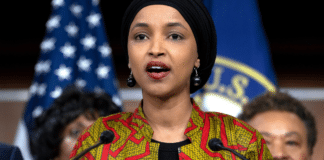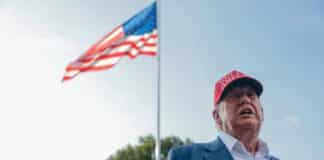On Thursday, the House passed a bill aimed at prohibiting electric vehicles made with components and minerals from China from benefiting from U.S. government incentives. This action marks a significant challenge to the ambitions of the Biden-Harris administration to boost electric vehicle (EV) adoption.
Rep. Carol Miller (R-WV) brought forward the “End Chinese Dominance of Electric Vehicles in America Act” in April, leading to its approval with a 217-192 bipartisan vote on Thursday morning. The bill gained support from 210 Republicans and 7 Democrats, with 22 members not present during the vote.
This decision is part of broader bipartisan efforts to transition manufacturing, especially within the green energy sector, back to American soil. It also aligns with congressional moves aimed at limiting China’s economic and energy sector influence, given China’s substantial role in the electric vehicle and solar panel supply chains.
Rep. Miller expressed satisfaction with the bill’s passage, emphasizing its significance in countering Chinese influence: “The End Chinese Dominance of Electric Vehicles in America Act takes steps to ensure that Chinese companies can no longer benefit from electric vehicles tax credits meant for U.S. manufacturers. I’m thrilled this bill has passed in the House of Representatives to stop Chinese influence in our supply chain.”
The controversy centers around guidelines introduced in December by the Biden-Harris administration, which seemed to make it easier for Chinese firms or those with connections to the Chinese Communist Party to utilize the lucrative electric vehicle tax credit offered by the 2022 Inflation Reduction Act. This credit could give consumers up to $7,500 for purchasing an electric vehicle, with restrictions in place to exclude vehicles using parts from designated “foreign entities of concern.”
The definition of “foreign entity of concern” by the administration’s guidance – a function of the White House Office of Clean Energy Innovation and Implementation and the Treasury Department – includes companies “incorporated in, headquartered in, and operating within” China, Russia, North Korea, or Iran. However, critics, including Sen. Joe Manchin (I-WV), argue that the guidance’s exemptions, particularly around battery materials that are difficult to trace, fail to honor the law’s intent and open opportunities for Chinese market penetration at the expense of American taxpayers: “This administration is, yet again, trying to find workarounds and delays that leave the door wide open for China to benefit off the backs of American taxpayers,” Manchin stated.
The bill proposed by Miller aims to compel the Treasury Department to adopt a narrower definition of what constitutes a “foreign entity of concern” and increase scrutiny on electric vehicle battery materials, ensuring a tighter vetting process and eligibility for the tax credit.
Rep. Miller criticized the administration’s stance as harmful to American manufacturers and national security. Similarly, Rep. Jason Smith (R-MO), chair of the Ways and Means Committee, criticized the administration during his support speech for the bill, highlighting the detrimental impact to American interests and inadvertently aiding Chinese dominance in the EV market: “When Vice President Harris cast the deciding tie-breaking vote for the Inflation Expansion Act, she and every Democrat in Congress, handed a massive gift to the Chinese government and its cronies. It’s time we put the brakes on giving taxpayer money to Chinese billionaires and the Chinese Communist Party.”
China’s significant stake in the electric vehicle battery supply chain is well documented, holding a 75 percent market share, per the International Energy Agency. The country further controls a dominant share of the world’s capacity for producing essential battery materials like cathodes and anodes, as well as processing and refining key minerals such as lithium and cobalt, critical for EV batteries and other green technologies.
This legislation represents a critical angle in the wider policy and economic battle over the future of electric vehicle production and the global supply chain’s dynamics.






